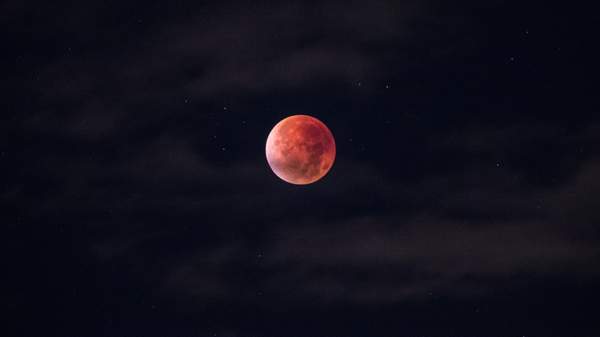Overview
Whatever else the past couple of years have served up, it has been an impressive time for folks who like staring up at the sky. 2016 ended with a huge supermoon that had everyone looking to the heavens, then 2018 began with an extremely rare super blue blood moon (a supermoon, a blue moon and a total lunar eclipse all at once). Next, at the end of July, an epic lunar eclipse will mark the next notable celestial happening.
In fact, the Saturday, July 28 event will be longest lunar eclipse of this century — with the penumbral eclipse lasting just shy of four hours (236 minutes, to be exact) and the total lunar eclipse spanning 103 minutes. If you're wondering what the difference is between the two (because we're all more familiar with The Mighty Boosh's take on the moon than actual lunar terms, aren't we?), a penumbral eclipse is when the earth's outer shadow falls on the moon's surface, while a total lunar eclipse involves the moon passing directly into the earth's actual shadow.
During the main event, which is expected to kick off at 5.30am local time, the moon will also turn a blood-red shade thanks to sunlight that's filtered and refracted by the earth's atmosphere. So yes, as well as a total lunar eclipse and a full moon, it'll be a blood moon as well.
Australians will be able to spy the penumbral eclipse from 3.14am and the partial eclipse from 4.24am, before the full thing at 5.30am, with the maximum eclipse occurring at 6.21am. We won't be able to see the end of it, however, as the moon will be below the horizon when the full, partial and penumbral eclipses end (at 7.13am, 8.19am and 9.28am local time, respectively).
While it's a great excuse to go stargazing, the 103-minute total eclipse only just pips the 100-minute event that took place on June 15, 2011 — and falls just short of the 108-minute event on July 16, 2000. Still, when the super blue blood moon did come around earlier in 2018, its full eclipse only lasted 72 minutes.
If you miss it, 102-minute total lunar eclipses are expected in 2029, 2047 and 2094 — but nothing this long will occur again this century.
Via Space.com and timeanddate.com.
